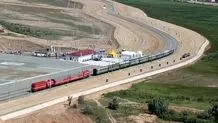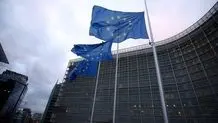Russia accused of blackmail after gas supplies to Poland and Bulgaria halted
EU hits out as Gazprom confirms action in response to countries failing to make payments in roubles.

THE GUARDIAN: EU hits out as Gazprom confirms action in response to countries failing to make payments in roubles.
Russia has been accused of seeking to blackmail the European Union as the energy giant Gazprom confirmed it had halted gas supplies to Poland and Bulgaria, prompting crisis talks in capitals across Europe.
In a statement, the Russian supplier said on Wednesday it had acted in response to the failure by the two EU countries to make their payments in roubles.
Vyacheslav Volodin, the speaker of Russia’s lower house of parliament, the Duma, said Moscow should do the same with other “unfriendly” countries.
The immediate consequence of the move by Gazprom was a 20% rise in the wholesale gas price, putting it at almost seven times higher than a year ago.
Ursula von der Leyen, the president of the European Commission, condemned the move, saying that fellow EU countries would come to Poland and Bulgaria’s aid.
She said: “The announcement by Gazprom that it is unilaterally stopping delivery of gas to customers in Europe is yet another attempt by Russia to use gas as an instrument of blackmail.
“This is unjustified and unacceptable. And it shows once again the unreliability of Russia as a gas supplier. We are prepared for this scenario. We are in close contact with all member states.”
Von der Leyen added that the commission had been in talks with countries outside Europe to ensure gas supplies.
She said: “We have been working to ensure alternative deliveries and the best possible storage levels across the EU.
“Member states have put in place contingency plans for just such a scenario and we worked with them in coordination and solidarity. A meeting of the gas coordination group is taking place right now.
“We are mapping out our coordinated EU response. We will also continue working with international partners to secure alternative flows. And I will continue working with European and world leaders to ensure the security of energy supply in Europe.
“Europeans can trust that we stand united and in full solidarity with the member states impacted in the face of this new challenge. Europeans can count on our full support.”
Russia’s president, Vladimir Putin, had warned in March that those countries that were “unfriendly” over the war in Ukraine would have to change their method of payment for gas supplies.
The European Commission had nevertheless said companies should continue to pay Gazprom in the currency agreed in their contracts, about 97% of which are in euros or dollars.
Gazprom has also said it would stop transiting gas through the two EU countries to others such as Germany if it discovered any withdrawal of volumes from pipelines.
“Bulgaria and Poland are transit states,” Gazprom said. “In the event of unauthorised withdrawal of Russian gas from transit volumes to third countries, supplies for transit will be reduced by this volume.”
The Polish gas company PGNiG confirmed that supply had stopped but a spokesperson said its clients were still getting the fuel in line with their needs.
The company said: “Cutting gas supplies is a breach of contract and PGNiG reserves the right to seek compensation and will use all available contractual and legal means to do so”.
Russia supplies about 55% of Poland’s annual demand of about 21bn cubic metres (bcm) of gas but it is far more reliant on coal to heat homes and fuel industry, with gas accounting for only 9% of the country’s overall energy mix.
Russian imports account for more than 90% of Bulgaria’s gas needs but the government insisted that no restrictions would be imposed on domestic gas consumption for the moment.
Alexander Nikolov, Bulgaria’s energy minister, said: “As long as I am a minister and responsible for this, Bulgaria will not negotiate under pressure and with its head bowed. Bulgaria does not give in and is not sold at any price.”
The only EU leader who has suggested he would pay Gazprom in roubles is Hungary’s Viktor Orbán, whose rightwing government has pursued a close relationship with Putin’s regime for more than a decade.
Hungary’s foreign minister, Péter Szijjártó, said “the news that Gazprom’s deliveries to Bulgaria have stopped may be worrying”, but he added that the transit of Russian gas to Hungary via Bulgaria would continue.
He said: “I would like to reassure everybody that the non-delivery of gas to Bulgaria does not mean the stop of transit through Bulgaria.”
آخرین اخبار News را از طریق این لینک پیگیری کنید.




